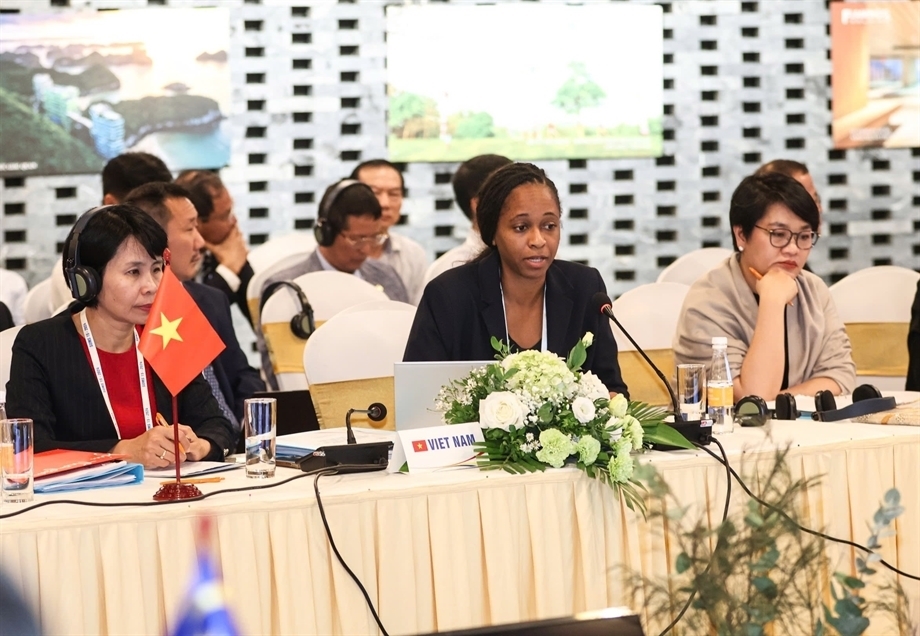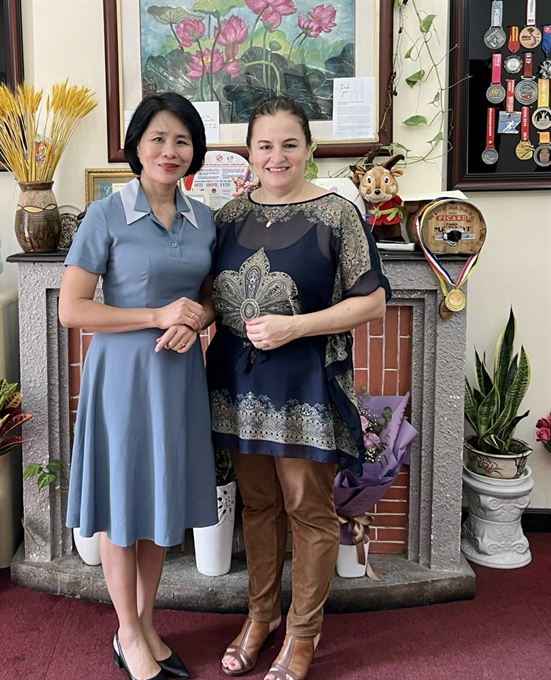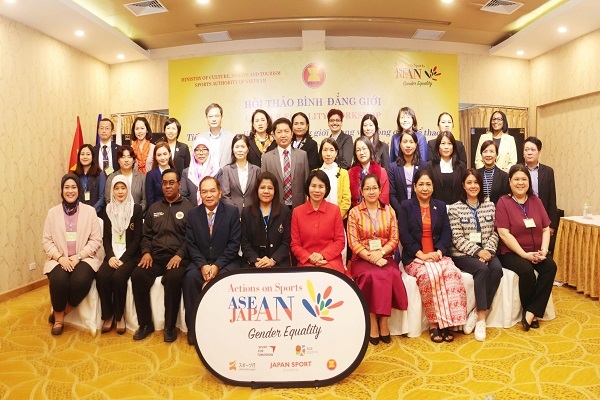Sports has long been considered a highly competitive field and is often assumed to be reserved for men. However, in Vietnam, this concept is gradually changing dramatically. Over the past decade, with the efforts of management agencies, social organizations and women themselves, gender equality in sports has achieved remarkable results, receiving high appreciation from the international community. Implemented since 2007 after the Law on Gender Equality was promulgated, policies to eliminate gender barriers in sports have created a favorable environment for women to participate and develop, thereby not only affirming their role in the international arena but also contributing to raising the status of domestic sports.

Gender equality in sports was one of the issues of concern to delegates at the ASEAN Senior Officials Meeting on Sports and Japan on October 15, 2024
Remarkable Achievements
Vietnamese women have become the "key players" in the country's sports development strategy, especially in key sports. The list of achievements of Vietnamese sports in major arenas cannot lack the mark of female athletes and coaches. Female boxer Tran Hieu Ngan made history as the first Vietnamese athlete to win a silver medal at the Sydney 2000 Olympic Games. Recently, the National Women's Football Team has brought home 8 SEA Games championships and won tickets to the 2023 World Cup Finals for the first time, creating a big echo globally. Names such as Nguyen Thi Anh Vien (Swimming), Le Tu Chinh and Nguyen Thi Oanh (Athletics), Duong Thuy Vi (Wushu) or the Women's Sepak Takraw Team (ASIAD champion) have proven that Vietnamese women have enough talent and will to reach the top. These achievements are not only personal victories but also symbols of the outstanding efforts and sacrifices of female athletes, who face more prejudices and difficulties than men.
The change in perception has led to practical policies. The sports sector has implemented many incentive plans to eliminate gender inequality. Equal salary, bonus and treatment policies are applied to both male and female athletes, ensuring that they receive income commensurate with their contributions. At the same time, communication and socialization programs have been promoted, helping female athletes receive wider attention and support from the public. Notably, social organizations and businesses have also accompanied with many sponsorship and job creation programs for female athletes after retirement, helping them have a stable and sustainable future. These are important steps forward, helping women to focus on training and consider sports as a serious, long-term career path.

Ms. Elisa Fernandez Saenz, UN Women Representative in Vietnam, also expressed her admiration for the value and role of women in Vietnam's sports achievements
Recognition from the international community
Vietnam's efforts in promoting gender equality in sports have received high appreciation from prestigious international organizations. The ASEAN Secretariat has acknowledged the achievements of Vietnam and in the ASEAN Senior Officials on Sports Meetings, Vietnam has shared its experiences and successes, especially in increasing the proportion of female officials in sports organizations. Similarly, Ms. Elisa Fernandez Saenz, UN Women Representative in Vietnam, also expressed her admiration for the value and role of women in Vietnam's sports achievements. She emphasized that sports is a great platform for women's empowerment and believes in the potential for cooperation between Vietnam and UN Women to promote comprehensive gender equality. These assessments are clear evidence that Vietnam is on the right track and has made positive contributions to the global gender equality goal.

The achievements of gender equality in the field of sports in Vietnam have received high appreciation from the ASEAN Secretariat
Challenges and future vision
Despite many successes, the journey towards gender equality in sports in Vietnam still faces challenges. The inherent problems of gender stereotypes, physical differences and harsh training conditions require more specific and flexible policies. To continue to promote the achievements that have been made, the Vietnamese sports industry has set out many key solutions. Specifically, it is necessary to develop human resources to enhance the leadership role of women in national sports federations and associations; promote modern media, honor female athletes; increase the number of sports and events for women in international tournaments. Moreover, it is necessary to continue to open systematic career guidance programs for female athletes after retirement, helping them confidently start their own businesses and stabilize their lives. Gender equality in sports is not only about fair awards but also about creating an environment where women are respected, empowered and recognized for their talents and contributions. With the progress achieved and strategic vision for the future, Vietnamese sports are demonstrating their role as one of the core factors to create comprehensive and sustainable gender equality.
Ha Phuong